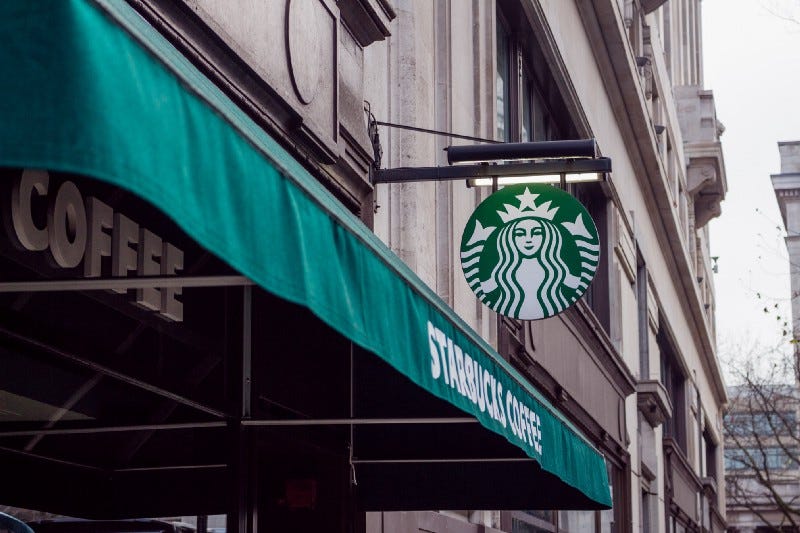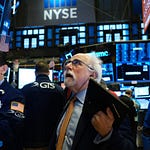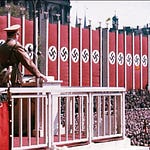
Every Sunday morning for several years, my friends and I used to gather at Locke Street Bakery on Locke Street in Hamilton.
The bagels were amazing.
Literally handmade.
Boiled and fire-baked right before our eyes.
Slathered with homemade cream cheese, smoked salmon, the works.
Served by women in their forties and fifties who we knew by name.
LSB was a blue-collar institution in a run-down neighborhood, and for decades it faithfully served its equally faithful clientele.
LSB was so good, in fact, that it started attracting other local businesses.
A funky hair salon opened across the street.
A butcher shop did the same.
A bookshop.
A florist.
And then, one day — once all the signs suggested this neighborhood was about to pop — Starbucks moved into the neighborhood.
It was all downhill from there.
Corporations can’t create culture.
Corporations aren’t real.
They’re just legal fictions; anti-human institutions that live forever, have more rights than people, and exist solely to extract wealth from employees, suppliers, consumers, and taxpayers.
Corporations can’t and don’t create culture because culture is natural, organic, biological, creative.
It’s why people use Airbnb/steal real family homes instead of staying at hotels. Marriott can’t fake home.
It’s why all the top restaurants in the world aren’t chains. Real human chefs surprise and delight patrons with new and living flavors. McDonald’s and Starbucks, on the other hand, are continually “innovating,” but it all tastes roughly the same because the bottom line goal isn’t creative expression, it’s profit.
If you’ve ever been to a corporate “community event” or witnessed a corporate-created “grassroots campaign,” you know exactly what I mean. Everything’s a bit sanitized and clean and proper and nice and… off.
That’s because corporations aren’t relational — they’re transactional.
They can’t give freely and creatively.
Their legal fiduciary reason for existence is to take.
And human beings can smell it from a mile away.
The Corporate Colonization Cycle
Because corporations can’t create culture, they have to play succubus to a living host, hoovering resources out of fledgling local ecosystems.
To put it another way, corporations have to find real culture creators who are building meaningful neighborhoods, and then slip in their stores to get in on the action before the culture-creators get pushed out and move elsewhere.
Unlike one-of-a-kind local businesses that keep 100% of their profits spinning in their neighborhood and attract outside money, multinationals do the opposite: They siphon money from local communities to faraway elite shareholders, and make everywhere so similar and boring that it drives people away from once-thriving pockets of real culture.
In the case of Starbucks and hundreds of other multinational monster brands, they literally have teams of people who research up-and-coming areas to determine the best place to install their wealth-extracting hoses.
The corporate colonization cycle happens all over the world:
Ernest Hemingway shops at a bookstore, and suddenly Shakespeare and Co. is a lifeless global brand.
Mennonites create St. Jacob’s Farmer’s Market, then Walmart builds just feet across the county line to benefit from all the visitors.
A trunkmaker named Louis Vuitton crafted high-quality bags, now a hyper-capitalist billionaire leverages the name to buy out seventy competitor brands.
Simone de Beauvoir and Jean-Paul Sartre chatted philosophy at a run-down restaurant, now Café de Flores is overrun by celebrities and narcissistic Instagramers.
Two centuries ago, Vincent Van Gogh used a certain sketchbook made of moleskin, and in 1997 an Italian papermaker created an overpriced knock-off version that’s now owned by a Belgian glass repair company.
The corporate colonization cycle is simple and heartbreaking:
People create culture → Corporations kill culture.
After Starbucks moved to Locke Street, everything changed.
House prices tripled, driving out the working poor.
Antique shops bloomed like mold on week-old bread.
Airbnbs popped up like brain tumors.
The streets got cleaner, safer, more sanitized.
Surveillance cameras showed up in shop windows.
Pretty soon, crowds of aging female shoppers arrived, all looking to be part of this exciting new “neighborhood.”
Little did the tourists know as they ordered their flat whites at Starbucks, but Locke Street had already died.
All the real culture-creators had moved to James Street and Ottawa Street and Cannon Street.
And, after serving as the neighborhood’s beating heart and soul for decades, Locke Street Bakery closed.
It got bought out by a capitalist couple who moved the bakery to a lifeless warehouse in the suburbs and tried to make LSB a brand to sell in stores.
All those sweet bagel-serving women were fired. (I miss you, Sue.)
When the capitalists eventually realized that no one was interested in frozen bagels, they turned the former storefront into a lifeless vegan cafe staffed with why-are-you-even-talking-to-me Millennials.
Ironically, they called the restaurant Democracy.











